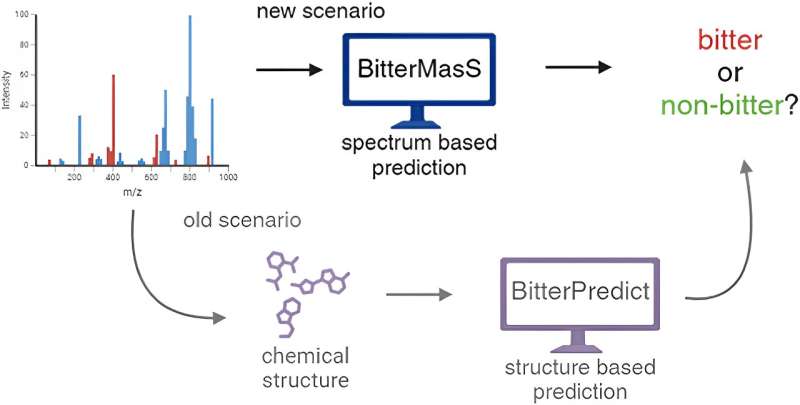
BitterMasS, a novel tool utilizing mass spectrometry, promises advancements in predicting bitterness in compounds. Developed through interdisciplinary collaboration, it offers enhanced precision and efficiency compared to traditional methods, with wide-ranging applications in food science, pharmaceuticals, and beyond.
BitterMasS not only accelerates taste perception research but also holds potential for transforming food processing, health discoveries, and safety monitoring, marking a significant advancement in taste prediction and compound screening technologies.
The pioneering tool was developed by a team led by Phd student Evgenii Ziaikin and Prof. Masha Niv from Hebrew University and Dr. Edisson Tello and Prof. Devin Peterson from Ohio State University. BitterMasS harnesses the power of mass spectrometry to predict bitterness in compounds without requiring prior knowledge of their chemical structures.
This advancement marks a significant departure from traditional methods that relied on structural data, which only covers a small fraction of the metabolome.
The paper, titled “BitterMasS: Predicting Bitterness from Mass Spectra,” is published in the Journal of Agricultural and Food Chemistry.
Bitterness, a fundamental taste modality potentially related to toxic substances, has long intrigued scientists and food experts alike. Now, the study promises to revolutionize how bitterness is understood and managed in foods and beverages.
Using a dataset of more than 5,400 experimental mass spectra of bitter and non-bitter compounds, BitterMasS achieved remarkable precision and recall rates in internal tests. For external validation, the tool demonstrated robust performance, accurately identifying bitter compounds without structural information.
These findings underscore BitterMasS potential to streamline compound screening processes in food science, pharmaceuticals, and beyond.
“BitterMasS represents a critical shift in taste prediction,” said Prof. Niv, lead researcher. “By leveraging mass spectrometry data, we can now predict bitterness directly and efficiently, opening doors to new discoveries in health-promoting compounds and enhanced food processing techniques.”
Researchers envision BitterMasS as a versatile tool capable of monitoring bitterness changes over time, providing critical insights into food quality and safety. This innovative approach also offers practical applications in drug development and metabolomics.
BitterMasS stands as a testament to the power of interdisciplinary collaboration and technological innovation in advancing our understanding of taste. Its implications extend far beyond the lab, potentially reshaping how we perceive and utilize bitter compounds in various industries.
More information:
Evgenii Ziaikin et al, BitterMasS: Predicting Bitterness from Mass Spectra, Journal of Agricultural and Food Chemistry (2024). DOI: 10.1021/acs.jafc.3c09767
Citation:
New tool can predict bitterness in foods without prior knowledge of their chemical structures (2024, July 15)
retrieved 15 July 2024
from https://phys.org/news/2024-07-tool-bitterness-foods-prior-knowledge.html
This document is subject to copyright. Apart from any fair dealing for the purpose of private study or research, no
part may be reproduced without the written permission. The content is provided for information purposes only.

